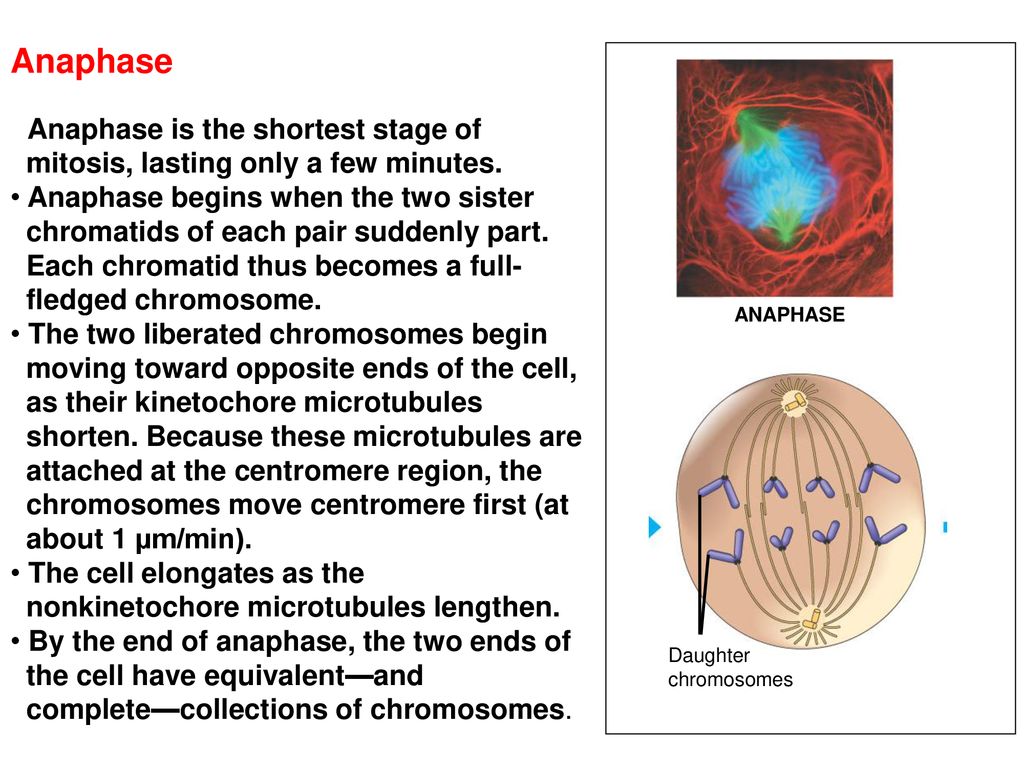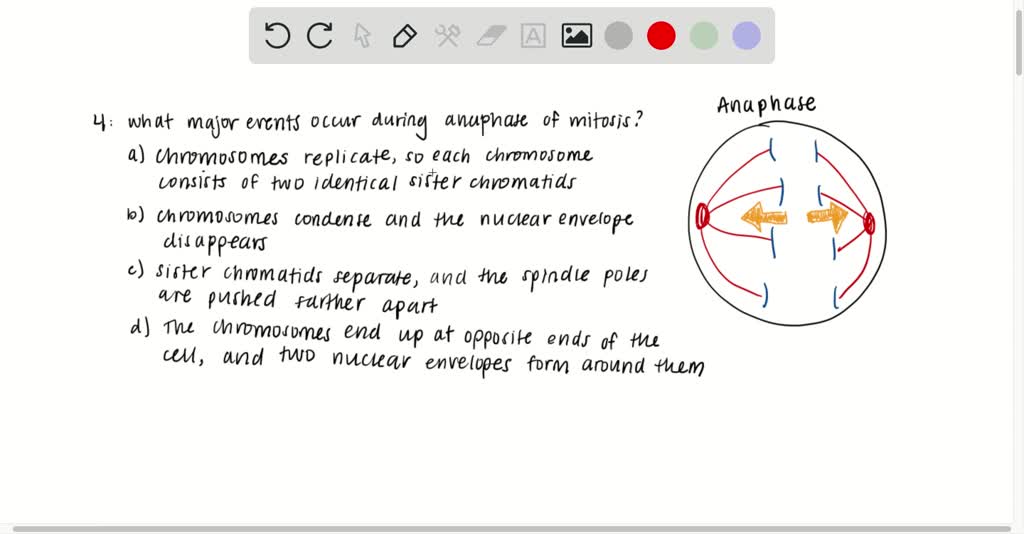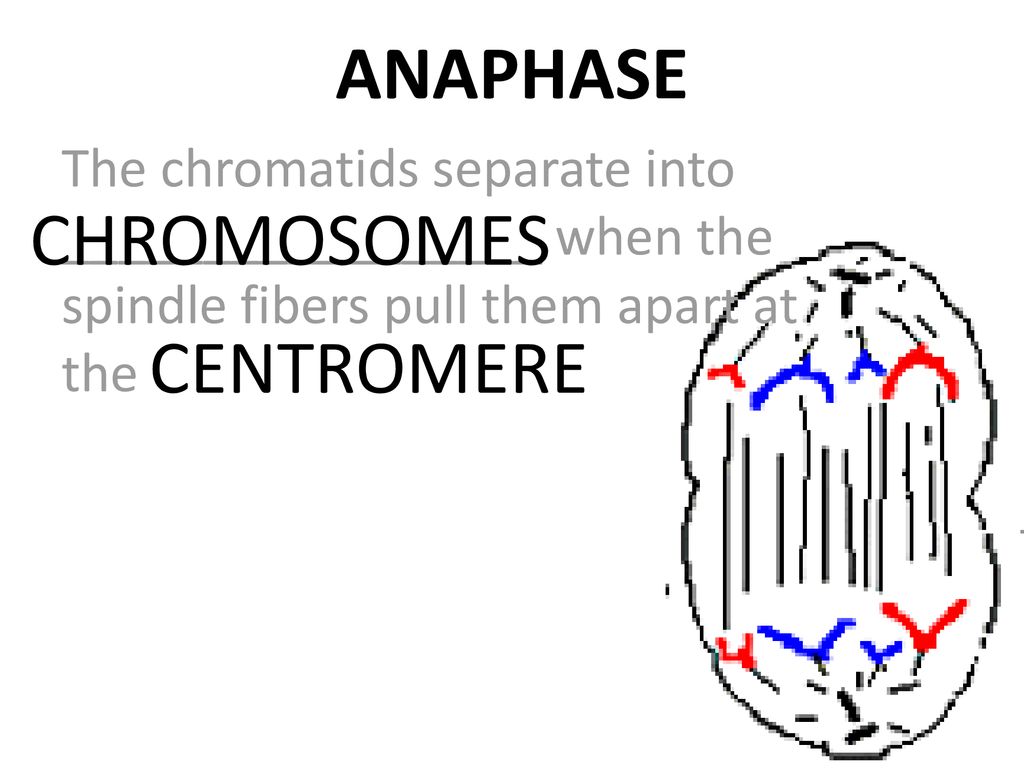Modes of anaphase I segregation of the chromosomes involved in the Biology Diagrams Introduction to Chromosome Movement: Chromosomes are involved in a series of directed movements during both mitosis and meiosis. With the separation of the sister chromatids/homologues at anaphase, the equilibrium is broken, the chromosomes move towards the poles at the rate of about 1 pm/min.

Anaphase is characterized by two distinct motions. The first of these, anaphase A, moves chromosomes to either pole of a dividing cell (marked by centrosomes, from which mitotic microtubules are generated and organised).The movement for this is primarily generated by the action of kinetochores, and a subclass of microtubule called kinetochore microtubules.

Anaphase II and How Sister Chromatids Separate Biology Diagrams
Motor proteins generate forces that drive chromatid movement. Dynein moves toward the minus end of microtubules, pulling chromatids toward spindle poles. Kinesin-13 facilitates microtubule disassembly at kinetochores and spindle poles, aiding chromatid movement. In Anaphase I, homologous chromosome pairs separate, reducing chromosome number The Xenopus chromokinesin Xkid is essential for metaphase chromosome alignment and must be degraded to allow anaphase chromosome movement. Cell 102, 411-424 (2000). Anaphase I is the third stage of meiosis I and follows prophase I and metaphase I. This stage is characterized by the movement of chromosomes to both poles of a meiotic cell via a microtubule network known as the spindle apparatus.

Anaphase Spindle Generates More Force than Needed for Anaphase Chromosome Movement. It might seem natural to assume that the spindle forces normally generated during anaphase, when the chromosomes are undergoing their most obvious movements, are higher than during other phases of mitosis. Anaphase Definition. Anaphase is a stage during eukaryotic cell division in which the chromosomes are segregated to opposite poles of the cell. The stage before anaphase, metaphase, the chromosomes are pulled to the metaphase plate, in the middle of the cell.Although the chromosomes were heavily condensed in the start of cell division, they continue to condense through anaphase. ADVERTISEMENTS: Read this article to learn about the Movement of Chromosomes during Anaphase ! During nuclear division or mitosis, there is a progressive change in the structure and appearance of the chromosomes. Although mitosis is a continuous process (Figs. 20-20 and 20-21), for convenience it is usually divided into four major stages: prophase, meta- phase, […]

Definition, Mitosis, Summary, & Facts Biology Diagrams
In anaphase I, homologous chromosomes separate and move towards opposite ends of the cell. This ensures that each resulting daughter cell receives a complete set of chromosomes. What Is Anaphase 1 Vs Anaphase 2? Anaphase 1 separates homologous chromosomes, Anaphase 2 separates sister chromatids. Both involve chromosome movement to opposite poles.
